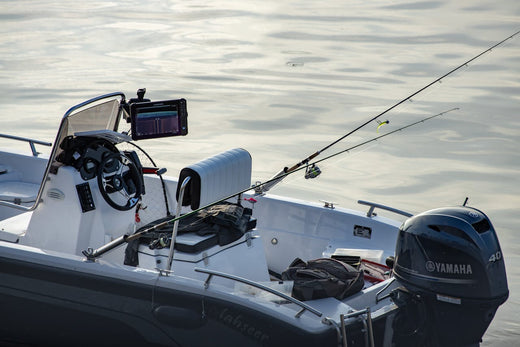Your Cart is Empty
ORDERS OVER $99 UNLOCK FREE* SHIPPING
Menu
-
- Home
- Archery
- Automotive/RV
- Boating
- Camping
- Fishing
- Hunting
- Outdoor
- Shooting
- Trailering
- Watersports
- Brands
-
- (208) 590-7477
- Login

ORDERS OVER $99 UNLOCK FREE* SHIPPING

Tips for Selecting the Right Propeller Pitch
3 min read
Table of Contents
- Introduction
- Understanding Propeller Pitch
- Factors Affecting Propeller Pitch Selection
- 1. Boat Specifications
- 2. Boat Usage
- 3. Engine Characteristics
- 4. Manufacturer Recommendations
- 5. Seeking Professional Advice
- 6. Testing Different Propeller Pitches
- 7. Monitoring Performance and Making Adjustments
- Maintenance and Care
- Conclusion
Tips for Selecting the Right Propeller Pitch
Introduction
Choosing the correct propeller pitch is essential for optimizing the performance of your boat. The propeller pitch refers to the distance the propeller moves forward with each rotation. It plays a crucial role in determining the boat's speed, fuel efficiency, and overall handling. In this article, we will provide you with valuable tips on selecting the right propeller pitch to ensure a smooth and enjoyable boating experience.
Understanding Propeller Pitch
The propeller pitch refers to the theoretical forward distance the propeller would travel in one complete rotation if there were no slip between the propeller blades and the water. It is usually expressed in inches. A higher pitch propeller will result in greater boat speed but may compromise acceleration, while a lower pitch propeller will provide better acceleration but may limit top speed.
Factors Affecting Propeller Pitch Selection
Several factors influence the selection of the right propeller pitch. Understanding these factors will help you make an informed decision.
1. Boat Specifications
Consider the size and weight of your boat. Larger and heavier boats generally require propellers with higher pitches to generate adequate thrust. Smaller boats, on the other hand, may benefit from propellers with lower pitches for better maneuverability.
2. Boat Usage
The intended use of your boat also plays a significant role in propeller pitch selection. Different activities such as cruising, water skiing, fishing, or racing demand specific propeller characteristics. For example, water skiing requires quick acceleration, making a lower pitch propeller more suitable.
3. Engine Characteristics
The horsepower and torque of your boat's engine affect the propeller pitch selection. Engines with higher power outputs can handle higher pitch propellers, while lower powered engines may require lower pitch propellers to achieve optimal performance.
4. Manufacturer Recommendations
Consulting the boat and engine manufacturer's recommendations is crucial. They often provide guidelines or specific propeller recommendations based on their product testing and performance evaluations. Following these recommendations can help ensure optimal performance and prevent damage to the engine or boat.
5. Seeking Professional Advice
If you're unsure about the propeller pitch selection, consider seeking advice from boating professionals or marine mechanics. Their expertise can assist you in choosing the right propeller pitch based on your specific boat and usage requirements.
6. Testing Different Propeller Pitches
In some cases, it may be necessary to test different propeller pitches to find the optimal one for your boat. This trial and error approach can be useful if you have unique requirements or if you're fine-tuning the boat's performance for specific conditions.
7. Monitoring Performance and Making Adjustments
After selecting a propeller pitch, monitor your boat's performance closely. Pay attention to factors such as acceleration, top speed, fuel efficiency, and handling. If necessary, make adjustments to the pitch to optimize these performance parameters.
Maintenance and Care
To maintain the propeller's efficiency and prolong its lifespan, it's essential to perform regular maintenance and care. Here are a few tips:
- Inspect the propeller for any damage, such as dings, cracks, or bent blades. Repair or replace damaged propellers promptly.
- Clean the propeller regularly to remove any marine growth or debris that may affect its performance.
- Lubricate the propeller shaft and propeller hub according to the manufacturer's recommendations.
- Check the propeller nut and cotter pin for tightness and replace them if necessary.
- Store the propeller in a secure and dry location when not in use to prevent corrosion.
Conclusion
Selecting the right propeller pitch is vital for optimizing your boat's performance. Consider factors such as boat specifications, usage, engine characteristics, manufacturer recommendations, and seek professional advice when needed. Regularly monitor your boat's performance and make adjustments if required. By following these tips, you can enjoy smoother rides, improved fuel efficiency, and a more enjoyable boating experience.



